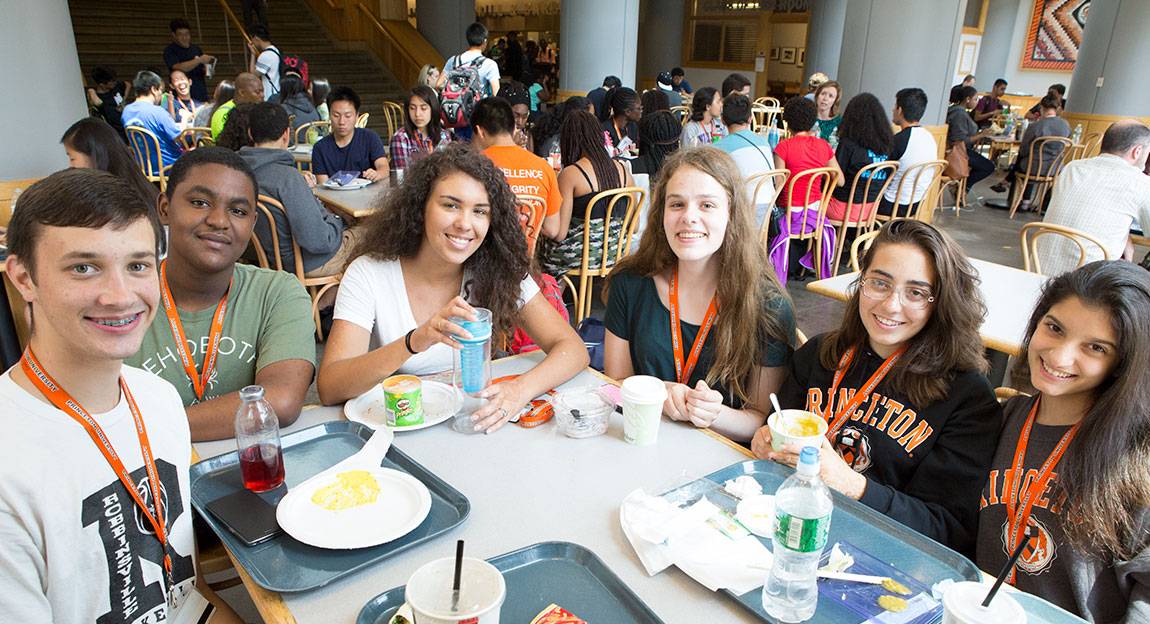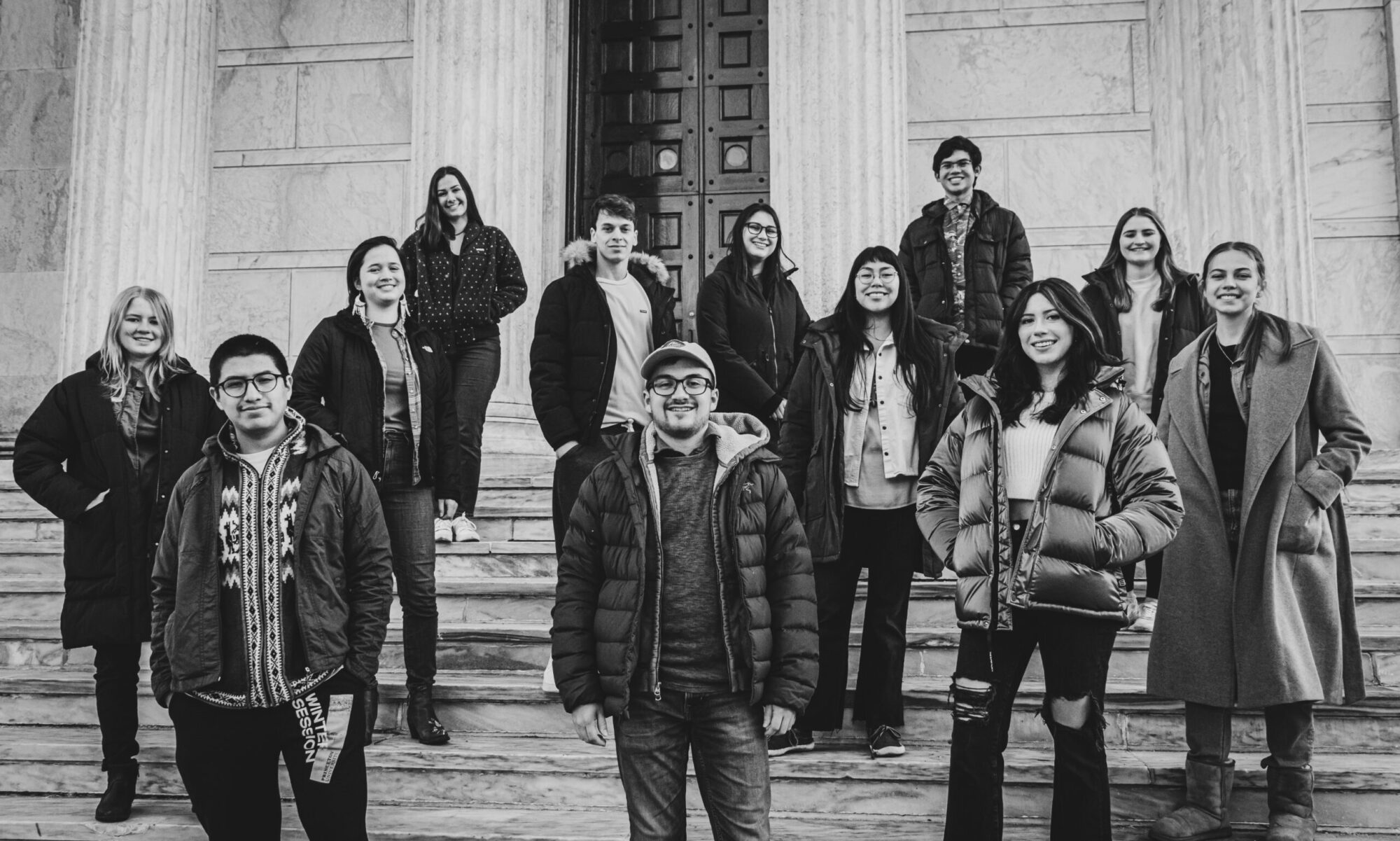College Application Organizations
College Horizons is an annual pre-college summer program for Native American, Alaska Native and Native Hawai’ian high school sophomores and juniors. Students work with college admissions officers, college counselors, essay specialists, and other educators in a six-day college admissions “crash course” focused on understanding the college admissions application process. The rigorous workshops inspire students to find a college that will satisfy their needs for a fun, challenging and supportive environment. College Horizons strives to equip their students with the tools to make their college dreams and goals a reality.
Matriculate provides free, virtual college advising to low-income high schoolers throughout the college application process. Students are paired with advisors from top colleges in the summer between their junior and senior years of high school. Students receive help on with crafting their college list, college applications, personal essay, resumé, scholarships, choosing a college, and much more! Apply today.
Leadership Enterprise for a Diverse America (LEDA) is “the preeminent national nonprofit organization dedicated to diversifying the national leadership pipeline by helping high-achieving students from under-resourced backgrounds gain admission to our nation’s most selective colleges and supporting their success at these institutions.”

Project Rousseau aims to “empower youth in communities with the greatest need to reach their full potential and pursue higher education. We achieve this by delivering mentoring, academic support, community service programs and international cultural exchanges for the young people referred to us. We take a holistic approach to our students’ education and development because we believe that academic problems rarely have academic causes. We strive to give every one of our students the opportunity of a college education.”
Story2. “From college admission essays to interviews and public speaking, Story2 is shifting the way the world communicates.At Story2, we teach students how to write powerful admission and scholarship essays using storytelling, we train new and seasoned professionals how to find jobs that are aligned with their purpose and mission in life, and we provide training workshops to business teams on how to use storytelling to improve sales, recruiting, company messaging and culture.” This year, due to the COVID-19 pandemic, Story2 is free.
Academic & Other Organizations
American Indian Science and Engineering Society (AISES) “administers many programs, services, and events for pre-college, undergraduate and graduate students designed to increase their access to college and support their success in in preparation for careers in STEM fields. Native college students need professional mentorship and peer support in addition to scholarship support. Students are most successful when they have a network of other Native students, as well as professionals who can provide ongoing support while they are pursuing undergraduate and graduate studies. AISES provides exactly this critically needed support through its programming.”
United National Intertribal Youth (UNITY)’s “mission is to foster the spiritual, mental, physical, and social development of American Indian and Alaska Native youth and to help build a strong, unified, and self- reliant Native America through greater youth involvement.”
The Intertribal Youth Summit “connect[s] youth leaders through interactive discussions on critical issues, hands on workshops to build skills and self-expression, and networking to spark youth-led solutions in their communities.”
The Aspen Institute’s Center for Native American Youth (CNAY) “is a national advocacy organization working to improve the health, safety, and overall well-being of Native American youth ages 24 and under. Founded by former US Senator Byron Dorgan, CNAY is a policy program within the Aspen Institute, headquartered in Washington, DC. While a part of the Aspen Institute, CNAY is also overseen by a Board of Advisors. We strive to bring greater national attention to the issues facing Native American youth while fostering community-driven solutions, with special emphasis on youth suicide prevention.”
National Congress of American Indians Youth Commission “works to ensure that Tribal Youth thrive by equipping tribal leaders with the resources necessary to support the young people in their communities and by providing young leaders with the tools needed to be successful in their endeavors.”
Resource Documents
Native Pathways Guidebook. This culturally-relevant guide was developed to empower Native students to prepare, plan and successfully take the first steps of their higher education journey – with their identity firmly in hand. Helping students navigate school choice, applications, finances, and their first year at school, it includes contributions from Native graduates, professionals and artists.
College Board’s Indigenous College Planning Guidebook. This resource from the College Board offers information on the college application geared toward American Indian and Alaska Native high school students. It includes tips for making the most of your junior year of high schools, standardized testing, identifying colleges and deciding where to apply, writing your personal statement, applying for financial aid and scholarships, choosing a college, and much more.
American Indian Education Fund’s Tools for Success reference guide to provides Native students & families with the information to help you plan for college. Knowing when to sign up for tests, which forms to fill out, and when and where to begin looking for the right school can be an overwhelming task for many high school students. With this guide, you will be able to develop a plan for your senior year or the year preceding your entry to college.
Top Ten Things Native American Students Should Consider When Choosing A College. This resource from the American Indian Education Fund can be helpful for Native students in determining what questions might be important to them in identifying colleges that are a good fit.
How to tell your Native story on a college application. This article by Alexis Panza from AISES gives some great tips for how to craft your college application and essays and best assert your Native voice and get accepted to the college of your dreams!
Scholarship Programs
Questbridge. “Founded in 1994, QuestBridge is a national nonprofit based in Palo Alto, California that connects the nation’s most exceptional, low-income youth with leading colleges and opportunities. By working with these students — beginning in high school through college to their first job —QuestBridge aims to increase the percentage of talented low-income students attending the nation’s best colleges and to support them to achieve success in their careers and communities.”
Posse. “The Posse model works for both students and college campuses and is rooted in the belief that a small, diverse group of talented students—a Posse—carefully selected and trained, can serve as a catalyst for individual and community development. As the United States becomes an increasingly multicultural society, Posse believes that the leaders of the 21st century should reflect the country’s rich demographic mix. The key to a promising future for our nation rests on the ability of strong leaders from diverse backgrounds to develop consensus solutions to complex social problems. Posse’s primary aim is to train these leaders of tomorrow.”
Jack Kent Cooke Scholarship “The Jack Kent Cooke Foundation’s scholarship programs are designed to encourage and support outstanding students who work hard and have financial need. Our scholarships provide financial assistance and academic support to high school, undergraduate, and graduate students. In addition to the monetary award, students join a thriving network of nearly 2,800 Cooke Scholars.”
Gates Scholarship “The Gates Scholarship (TGS) is a highly selective, last-dollar scholarship for outstanding, minority, high school seniors from low-income households. Each year, the scholarship is awarded to 300 of these student leaders, with the intent of helping them realize their maximum potential. Scholars will receive funding for the full cost of attendance* that is not already covered by other financial aid and the expected family contribution, as determined by the Free Application for Federal Student Aid (FAFSA), or the methodology used by a Scholar’s college or university.”
The Accenture American Indian Scholarship Fund is an undergraduate scholarship. Applicants must possess a minimum 3.25 GPA and be an incoming college (undergraduate) freshman seeking a degree and career in fields of study including: engineering, computer science, operations management, management, finance, marketing, and business. Applicants must also be an enrolled member of a federally or state-recognized tribe or Alaska Native group or provide documentation of ancestry to possession of one-fourth degree Indian blood of a federally recognized tribe.
The Navajo Nation Chief Manuelito Scholarship program honors Chief Manuelito, Hastiin Ch’ilhaajiin, (1818-1893) who encouraged Navajos to seek education and protect and preserve Navajo tradition and culture. Recipients are awarded $7,000 per academic year to cover direct educational expenses associated with attending a post-secondary institution. Chief Manuelito Scholarship recipients are required to maintain a 3.0 GPA and earn 12 or more semester credit hours each term.
Tribal-Specific Resources
Most tribal nations have their own Higher Education Programs and offer resources such as free SAT/ACT books, SAT/ACT fee waivers, scholarships, money management programs, guidance books, graduation cords, and more. Check your tribe’s education program to see what they offer and what you’re eligible for.
On college applications, when is it appropriate for me to identify as ‘American Indian/Alaska Native’?
There is a lot of confusion concerning American Indian and Alaska Native identity, especially when it comes to identifying one’s race or ethnicity for college. Some people believe that just because their family has passed down stories of descent from an Indian they are therefore an American Indian. This is not the case. American Indian and Alaska Native identity in the United States is a political identity. Anyone who claims to be an American Indian or Alaskan Native must be an enrolled citizen of a tribal nation. It is not, and never has been, an ethnic, racial, or cultural identity that is established through self-identification. You cannot claim a Native identity on the basis of genetic testing, phenotype, family stories, “inherited” cultural practices, sentiments or feelings of affinity, or any other spurious criteria. The only way to claim this identity is to be recognized as an enrolled citizen of a tribal nation. The authority to determine citizenry is a fundamental sovereign right of each of these sovereign tribal nations. Anyone who claims a tribal identity without being an enrolled citizen of that nation is violating and disrespecting that sovereignty. Only individuals recognized as enrolled citizens of a tribal nation can claim a Native identity.
Whenever you identify as American Indian, such as identifying as American Indian/Alaska Native on a college application, you are initiating a public discussion about the validity of your claim to this identity. Colleges, tribes, and Indians will often pursue such claims and ask you to validate your Native identity through proof of citizenship. Many schools include additional forms or essays for those who identify as Native on the application. Schools may require that students identify the tribal nation in which they are enrolled, provide a tribal enrollment number, and/or provide a scan of their tribal enrollment card.
If you are not an enrolled citizen of a tribal nation, but you believe you have a legitimate claim to a Native identity, we encourage you to contact the appropriate tribal government for information on citizenship. If that tribal government determines that you do not have a right to citizenship in that tribe, you should not identify as Native on your college applications.
Resources:
https://www.huffpost.com/entry/opinion-warren-cherokee-dna_n_5bc63a69e4b0a8f17ee6ba9a?guccounter=1
